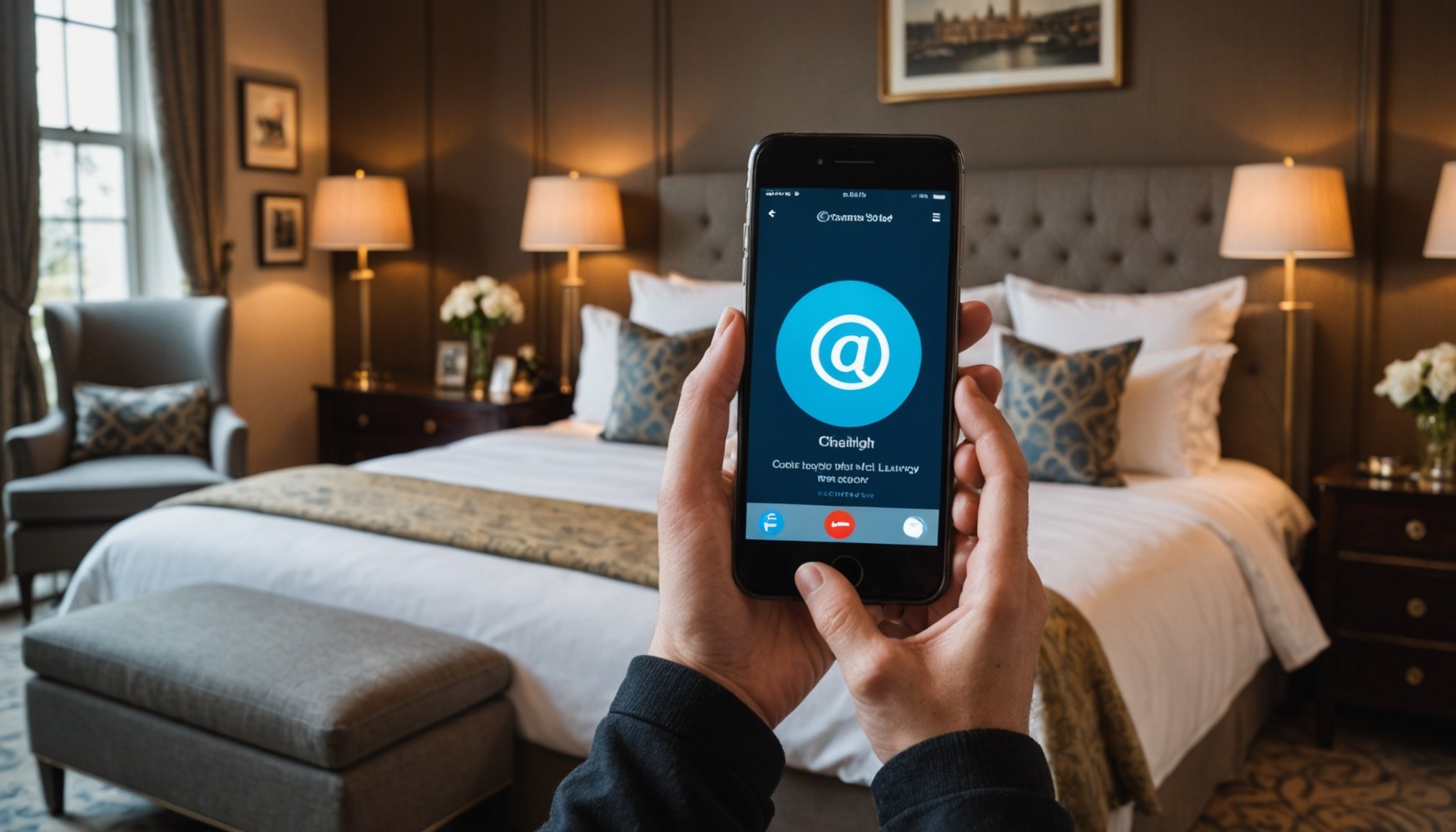Understanding the Affluent Traveler Demographic
Navigating the luxury travel market requires a nuanced understanding of the affluent demographic. This group is characterized by unique travel behaviors and preferences, prioritizing exclusivity and distinctive experiences over standard offerings. Understanding these traits is vital for successful traveler segmentation. Affluent travelers often opt for bespoke itineraries and personalised services, prioritising privacy and comfort.
Identifying this target audience is essential when crafting effective social media strategies. By honing in on their preferences, brands can tailor content that resonates deeply, driving engagement. Social media serves as a powerful tool in influencing and shaping luxury travel choices, as visual platforms highlight exotic destinations and lavish accommodations that captivate affluent audiences.
Topic to read : Unlocking B2B Revenue: Mastering LinkedIn Tactics for UK Home Security Companies
Current luxury trends significantly influence travel preferences, with an increased focus on sustainability, wellness, and authentic cultural experiences. Affluent travelers are more inclined to support businesses that align with these values, underscoring the necessity for brands to stay informed and responsive.
In conclusion, effectively engaging with the affluent demographic begins with a thorough understanding of their characteristics and preferences. This insight facilitates the development of targeted marketing strategies, ultimately enhancing brand allegiance and growth within the luxury sector.
In the same genre : Create engaging video scripts fast with ai's innovative power
Proven Social Media Strategies for Luxury Hotels
In luxury hotel marketing, social media strategies play a critical role in shaping brand identity and fostering guest engagement. These strategies, tailored for the luxury segment, leverage storytelling and emotional connection to captivate audiences. By weaving narratives that highlight a hotel’s heritage, unique experiences, or exclusive amenities, brands create an emotional pull that goes beyond mere promotion.
High-quality visuals are essential in this context. Images and videos showcasing opulent interiors, serene landscapes, or lavish events resonate deeply with potential guests. User-generated content adds an authentic touch, allowing past patrons to share their experiences, thereby fostering community trust and loyalty.
Effective engagement techniques include hosting interactive sessions, such as virtual tours or Q&A with the hotel staff, providing prospective guests a glimpse into the experience that awaits them. Such interactions not only highlight the hotel’s offerings but also encourage direct dialogue with the audience, enhancing connection and engagement.
Staying attuned to trends and continuously presenting fresh, relevant content is paramount. The ever-evolving luxury market demands a dynamic approach, where luxury hotel marketing adapts seamlessly to trends, ensuring the brand remains captivating to the affluent demographic. This strategic precision helps maintain a competitive edge in the upscale hospitality sector.
Content Creation Tailored to Affluent Travelers
Crafting content for the affluent demographic means diving into luxury branding and storytelling that resonates. Exceptional visual content, often the first touchpoint with potential customers, is essential. High-end photography showcasing elegant interiors or exclusive amenities captures attention, setting a visual standard that aligns with client expectations. Integrating storytelling into this framework can elevate the brand narrative. Sharing compelling narratives that intertwine personal or brand stories with luxury elements fosters a deeper emotional connection with audiences.
Crafting exceptional visual content
Exceptional visual content begins with high-quality photography and videography. These elements should not only highlight luxury but also convey the feel of exclusivity and comfort. Tailoring visuals to the luxury market means focusing on detail, elegance, and storytelling through images.
Writing compelling narratives
Compelling narratives bridge the gap between visuals and audience engagement, offering storytelling that speaks to the values and experiences sought by affluent travelers. Whether through a blog post that details the history of a hotel or a social media post that showcases guest experiences, engaging content underpinned by storytelling can effectively differentiate a brand.
Utilizing video for immersive experiences
Video content offers a dynamic avenue for storytelling, immersing viewers in the experiences your luxury brand provides. By using video tours or behind-the-scenes looks, brands can captivate affluent audiences, offering a taste of exclusivity and personal touch.
Selecting the Right Social Media Platforms
Choosing the ideal social media platforms is crucial for effective luxury hotel marketing. Focus on platforms like Instagram and Pinterest, known for their visual appeal and popularity among the affluent demographic. These channels allow hotels to showcase high-quality visuals that resonate deeply with the target audience.
Analysis of Platforms Effective for Luxury Hotel Marketing
When targeting affluent audiences, it’s important to consider the unique attributes of each platform. Instagram offers visually-driven content that aligns perfectly with the luxury travel market. Its user base appreciates visually stunning images, making it an ideal choice for high-end brands to tell their story. Pinterest, meanwhile, acts as a digital catalogue, inspiring potential guests to explore luxurious offerings.
Targeting Affluent Audiences on Different Social Networks
Tailor your platform strategies by leveraging demographics and engagement patterns. LinkedIn might not seem like an obvious choice, but engaging with luxury travel professionals and decision-makers is a strategic advantage. Each platform can serve a different aspect of brand storytelling and engagement.
Strategies for Maximizing Engagement on Chosen Platforms
To maximize engagement, consider utilising targeted ads, hashtags, and collaborations with influencers aligned to your brand ethos. Creating platform-specific content that prioritises storytelling and authentic connections can effectively capture the luxury travel segment’s attention, driving both engagement and loyalty.
Leveraging Influencers and Partnerships
The role of influencer marketing in the luxury travel sector is pivotal. By identifying and collaborating with luxury influencers, brands tap into a curated audience, ready for content that resonates on a personal level. Partnerships with well-known luxury figures can amplify brand storytelling, aligning the influencer’s vision with the brand ethos to forge authentic connections.
Identifying and Partnering with Luxury Influencers
Understanding the influencer landscape is crucial. Influencers should be selected based on their alignment with luxury values and their ability to engage an affluent demographic. This strategic fit ensures content remains authentic while reaching the right audience effectively. Building strong relationships is key to ongoing success and mutual benefit.
Building Strategic Collaborations with Luxury Brands
Beyond individual influencers, luxury travel partnerships between brands can be mutually beneficial, creating synergy through shared resources and audiences. Joint ventures might include exclusive events or co-branded content, leveraging shared values and missions to enhance market presence.
Measuring Success and ROI from Influencer Campaigns
Evaluating the return on investment for influencer campaigns is essential. Performance metrics such as audience reach, engagement rates, and conversions provide insight into effectiveness. By regularly analyzing these metrics, brands can refine strategies, ensuring their influencer collaborations continue to deliver maximum impact.
Engaging with Affluent Travelers
Fostering meaningful interactions with affluent travelers requires nuanced strategies in audience engagement and community building. These techniques are essential in enhancing customer loyalty, encouraging repeat patronage, and nurturing a devoted customer base.
A proven method includes hosting exclusive online events tailored to this demographic. Such events can range from virtual luxury experiences to private live Q&A sessions, where affluent travelers receive bespoke attention. This approach not only elevates the brand’s prestige but also strengthens the emotional connection with the audience.
Authentic guest feedback response is another pillar of maintaining loyalty and building a community. It’s crucial to address individual concerns promptly and sincerely, demonstrating that the brand values customer opinions. This genuine engagement fosters a sense of belonging and increases trust.
Additionally, leveraging feedback to refine services showcases a commitment to excellence. This attention to detail is highly regarded within the affluent segment, highlighting the brand’s dedication to continuous improvement. Overall, these engagement techniques solidify the relationship between luxury brands and their discerning clientele, ensuring sustained success within the competitive luxury travel market.
Analyzing Metrics for Success
In the realm of luxury hotel marketing, the ability to measure the success of social media campaigns hinges on understanding essential performance metrics. These metrics provide clarity on what resonates with the affluent audience and guide strategic adjustments. Engagement rates, such as likes, shares, and comments, are fundamental indicators of content effectiveness, revealing how well the audience connects with the brand story.
Equally crucial is audience reach, which measures the number of potential guests viewing your content. Tools like Google Analytics and platform-specific insights help track these metrics, ensuring that campaigns engage the right audience. Additionally, tracking conversion metrics, such as bookings from social media channels, further assesses effectiveness, offering tangible proof of campaign success.
Analytics tools are indispensable in this process, offering granular data that facilitates precise targeting and refined strategies. These tools enable luxury hotels to stay agile, adjusting their approach based on data insights. By evaluating and interpreting these metrics regularly, brands can ensure their marketing efforts remain aligned with their goals, enhancing both engagement and customer loyalty. Ultimately, a data-driven approach to analyzing metrics is pivotal in navigating the competitive luxury travel market.
Staying Ahead of Luxury Travel Trends
In the ever-evolving luxury travel market, staying ahead of current travel trends is essential for maintaining a competitive edge. This requires understanding the dynamic nature of affluent travelers’ preferences, shaped by global and cultural influences. The ability to adapt swiftly to these trends ensures brands remain relevant and engaging.
Adapting to Ongoing Changes
Recognising and integrating current insights allows companies to cater to the affluent demographic’s shifting demands. For instance, the increased emphasis on sustainability and wellness requires travel brands to offer eco-friendly and health-focused experiences. By aligning services with these values, brands can resonate more deeply with consumers.
Social Media Innovations
Innovations in social media platforms are pivotal in enhancing audience engagement. Incorporating user-generated content and interactive features, such as polls or virtual events, can drive deeper connections. Ensuring platform strategies are responsive and agile enables brands to foster genuine interactions and maintain a robust digital presence.
Anticipating Future Trends
Foresight into future trends is invaluable. Monitoring emerging technologies and cultural shifts provides the foundation to innovate continuously. Being proactive rather than reactive lets businesses maintain their allure in the luxury sector, ensuring that they meet the desires of the modern affluent traveler with precision and creativity.











